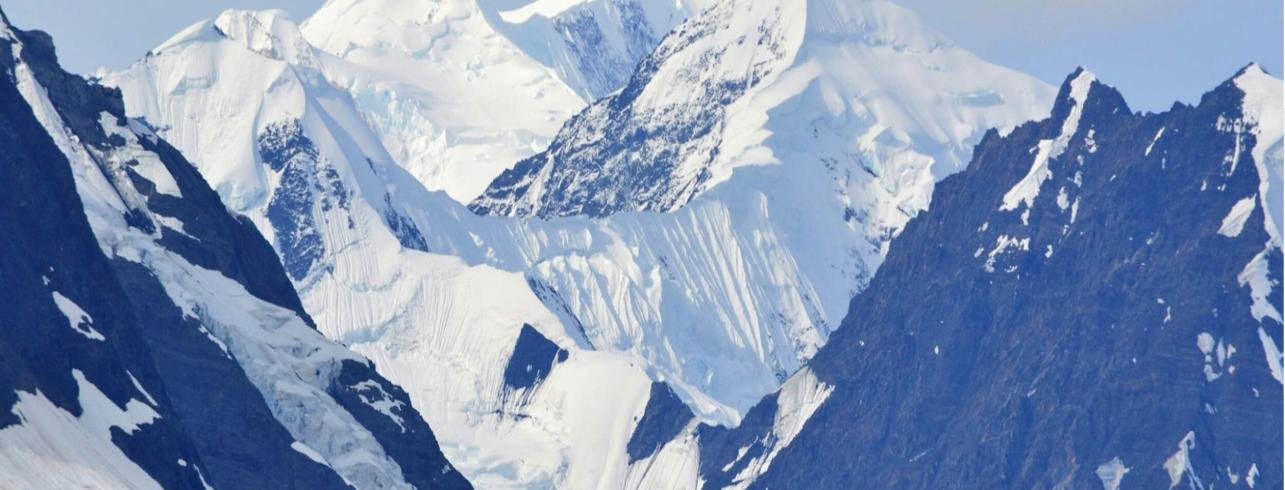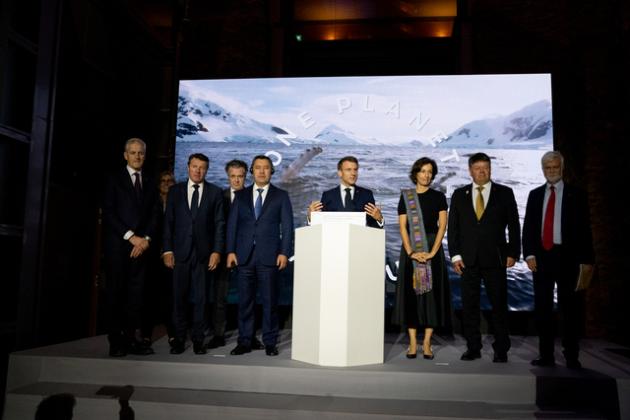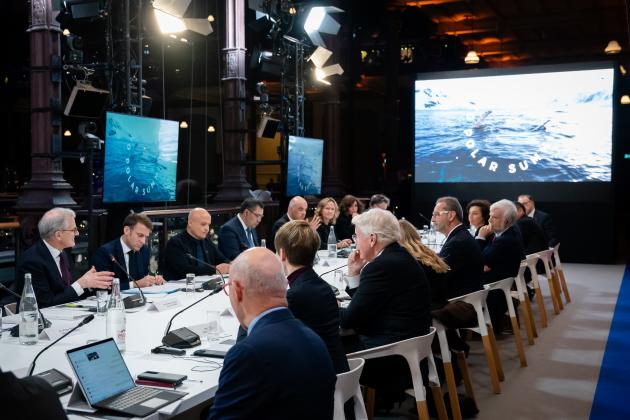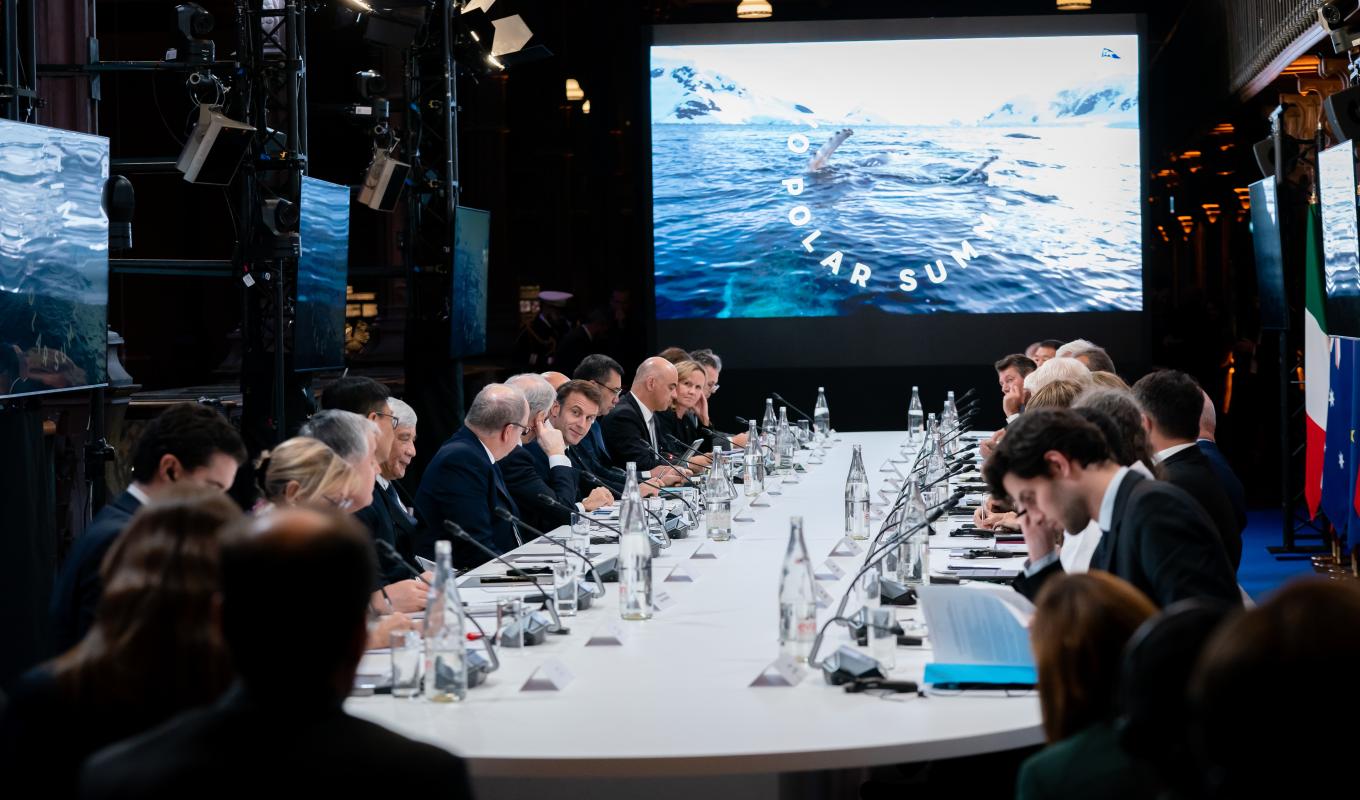The political declaration for the One Planet - Polar Summit has been endorsed by 34 countries, UNESCO and the World Meteorological Organization.
The cryosphere represents all the regions of the Earth's surface where water is in a solid state, covering 10% of the Earth's surface. It plays a crucial role in the planet's energy balance, the water cycle, climate retroactions, biodiversity and human societies. Unfortunately, with the intensification of global warming caused by human activities, we are seeing a reduction in ice sheets and glaciers, a rise in sea level, the thawing of permafrost, a reduction in snow cover, the melting of sea ice and the warming of polar oceans.
- The years 2021 and 2022 saw massive ice loss in mountain glaciers, with ice loss rates 20% higher on average than the previous decade.
- Arctic sea ice has been declining rapidly for the past 45 years, as has Antarctic sea ice, which reached its lowest extent ever recorded in February 2023. Arctic sea ice has been declining rapidly for the past 45 years, reaching its fifth lowest minimum in September 2023, with the annual sea ice extent being the second lowest since 1985.
- Climate change has also extremely alarming consequences on biodiversity in polar regions, from loss of habitat to disruption of food patterns for migratory species, changes to species composition and food-webs and increased risks of invasive species.
- The melting of polar ice caps and glaciers, and the icy zones of Greenland and East Antarctica, combined with the thermal expansion of the oceans, are causing sea levels to rise. This endangers coastal areas, cities built below sea level and islands. By 2050, this phenomenon will threaten a billion people living in coastal areas, cities built below sea level and islands.
Facing the collapse of the cryosphere as a whole, the Paris Call for Glaciers and Poles was launched during the One Planet - Polar Summit on 10 November in Paris. It was endorsed by 36 countries and international organizations, which pledged to maximize efforts to protect glaciers and poles around the world and adapt to the environmental, economic and social consequences of melting ice.
This common initiative has three main objectives:
- To enable more scientific cooperation in glacier and polar regions to understand and better integrate the effects of cryosphere changes into economic decision-making and increased education respond to melting ice:
- By taking into account the knowledge of local communities and indigenous people and local communities;
- By promoting working together in the scientific field through relevant organizations such as the European Union: joint financing, monitoring programs for the cryosphere, data sharing.
- To launch a decade of action for cryospheric sciences (2025-2035) to make new resources available for scientific research;
- To call to scale up the international efforts underway to reach:
- The objectives of the Paris Agreement: limiting global warming to 2°C above pre-industrial levels and continue efforts not to exceed 1,5°C;
- The objectives of preserving biodiversity: to protect 30% of land and seas by 2030;
- The objective of applying the highest sustainability standards to the exploration and production of hydrocarbons and mining resources;
- To regulate tourism in the Arctic and Antartica.
The Paris Call also launched a coalition of over 40 coastal and glacier nations from around the world, working together to tackle rising sea levels. This coalition will bring together the communities sheltering most of the Earth’s population directly affected by rising sea levels by 2100.
The Paris Call supports the International Climate Cryosphere Initiative (ICCI), aiming to share knowledge and focus international efforts on preserving the world cryosphere.
On the occasion of the One Planet - Polar Summit, France, Italy and Netherlands joined the « Ambition on Melting Ice » (AMI) high-level group hosted by the ICCI. The purpose of this group is to ensure that political leaders and the public understand the consequences of the disappearance of the cryosphere, not only in mountain and polar regions, but on the planet as a whole.
At the occasion of the Ministerial high-level annual meeting of the Group at COP28, France joined other countries to take stock on commitments. Many partners recognized the dynamic carried in the Paris Call for Glaciers and Poles on this occasion.
Guinea, Tajikistan, Bangladesh and Colombia have since joined the initiative too.




